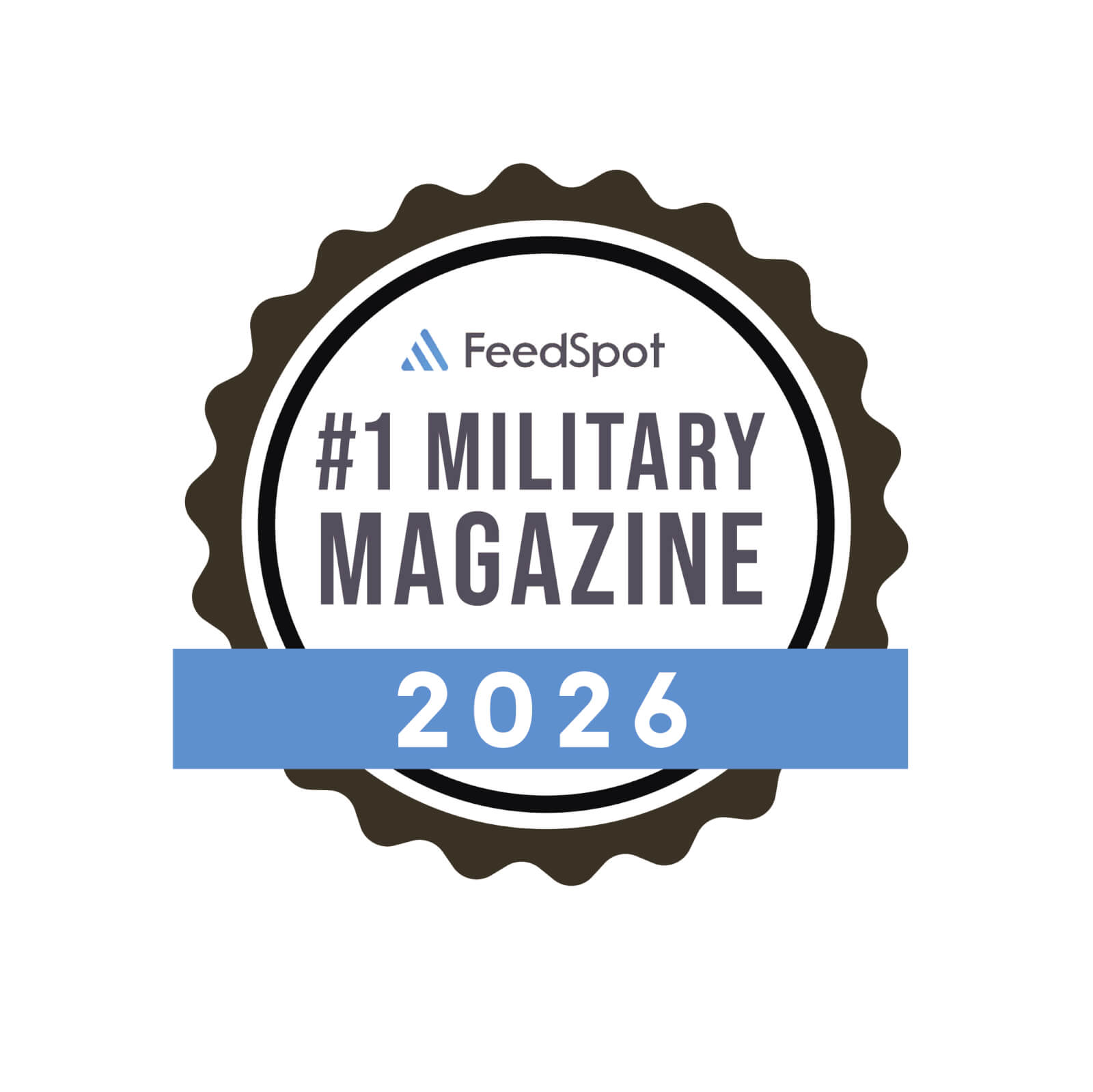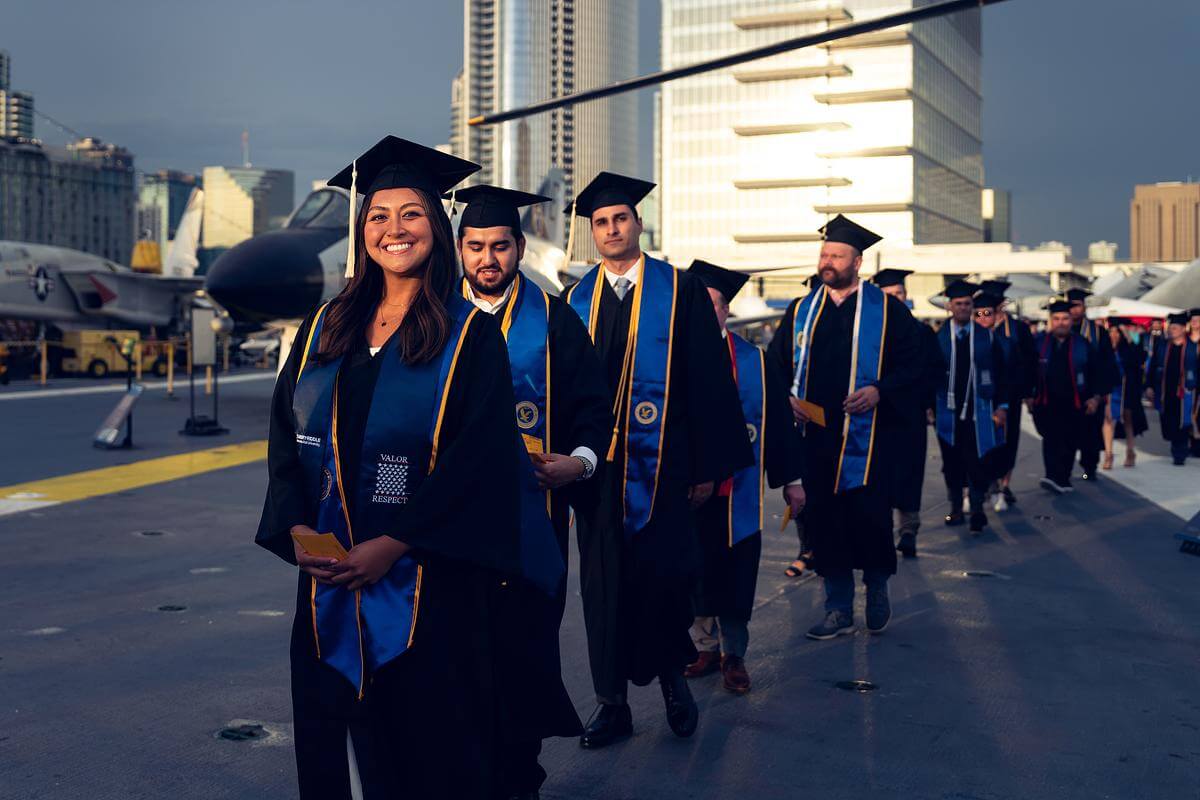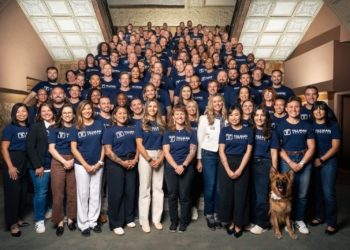At Embry-Riddle Aeronautical University (ERAU), students receive more than just an education; they also benefit from a military-friendly culture that is second to none.
The school – which has campuses in Daytona Beach, Florida, and Prescott, Arizona, in addition to a state-of-the-art online and worldwide campus network – was one of the first institutions approved to educate veterans under the GI Bill. Today, ERAU, which boasts nearly 160 military generals among its alumni family, prides itself on offering customized support services to veterans and military-connected family members looking to achieve educational success.
Jessica Purin, veteran affairs counselor in ERAU’s military and veterans student services department, initially gained an appreciation of the school’s military-friendly structure at home. That’s because – before she even worked at ERAU – her husband (who served in the Air Force) earned both bachelor’s and master’s degrees from the school’s Daytona Beach and worldwide campuses, respectively.
Today, Purin’s role at ERAU “not only aligns with my professional aspirations,” she says, “but also allows me to contribute meaningfully to a community close to my heart.”
From her unique vantage point, Purin explains, the school’s military-friendly culture embodies “a commitment to supporting veterans in their pursuit of educational excellence, whether transitioning from active duty or currently serving.”
Advantages for veterans and military-connected students include an active-duty military discount for service members, including reservists and guardsmen in drilling status, and their dependents. In fact, Purin’s department, she said, frequently serves as a pivotal benefits resource for students. ERAU offers “a uniquely empathetic and supportive environment, wherein every team member is uniquely positioned to relate to and address the needs of our veteran community,” she said.
Yet Purin’s department is just one of many at ERAU specifically dedicated to better serving those with ties to the military community.
“We help service members who have had a break from the classroom adjust,” Purin explained. “We’re here to answer questions, to provide them with options based on their own unique situation, and encourage them, now that they’ve made the decision to continue their education.”
The Virtual Communication Lab (VECTOR) is one tool that provides written, spoken, visual, and digital communication support for students through free tutoring, workshops, and a library of online resources. Students can schedule appointments to meet with a tutor, or pop in as their schedule permits. Additionally, the EQUATES program offers support for math, science, and technology curriculum with on-demand access to a collection of step-by-step video tutorials to refresh and enhance math skills.
The goal, Nicola Brady, ERAU’s assistant director of recruitment, says is to give online students access to the same support and student experience as those attending classes in person.
“A military-friendly culture extends far beyond accepting funding sources such as tuition assistance or the GI Bill,” Brady said. “It means aligning your mission and policies with the needs of military-connected students and recognizing their place in the classroom.”
Other ways ERAU supports military-connected students:
- Transfer credit offered for military training and education, based on ACE recommendations;
- Courses approved for credentialing assistance (more information can found on the COOL website);
- Learning centers – now called sites – at CONUS and OCONUS military installations across the globe;
- Application fee waivers are available for eligible students;
- Career transition coaching, resume review, and interview prep from ERAU’s career services team.
Brady adds that because many of the school’s faculty are veterans themselves, policies have been crafted with that specific lifestyle in mind.
“Embry-Riddle also considers military service obligations in our policies and procedures,” Brady said, pointing to occasions where the school has waived course drop penalties for official military travel or deployment. “We (also) follow the Higher Education Opportunity (HEO) Act of 2008, which states service members will be readmitted to the institution without penalty for having left because of military service, in order to minimize disruption to the lives of those persons serving in the uniformed services.”
The school operates not just as a successful educational institution, but also excels as one catering to the military lifestyle. And that, Brady stresses, makes all the difference for students around the world.
“Our military-connected roots,” Brady says, “run deep!”































